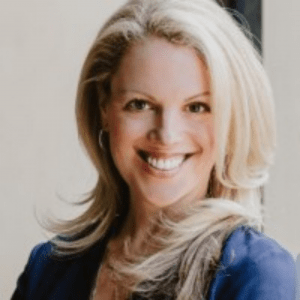
The Hunt Institute, in partnership with the Inclusive Economy Consortium, dedicated its final ImpactNights™ program of the academic year June 17, 2021, to “Freedom Day” with an expert-led look at the obstructions in our justice system that hinder economic freedom for a significant number of black and brown Americans. With the highest incarceration rate in the world, the U.S. penal system creates barriers to economic inclusion for entire families. While making Juneteenth a national holiday represents progress, America cannot achieve an inclusive economy until it puts more justice into our criminal legal system.
The economic ramifications of mass incarceration are substantial. In the U.S., one in two adults has had a family member who is or has been incarcerated, and jail and prison populations have quadrupled since 1980. This represents the highest incarceration rate not only in any Western democracy but also in the world. The U.S. incarceration rate is also highly unequal, with men of color disproportionately represented, and most of them being poor. Families of incarcerated people also suffer significant economic hardships and risk not being able to meet basic needs, which can result in homelessness.
The cascade of harmful economic and societal consequences of incarceration on communities of color is undeniable and rising. According to 2009 data, almost 70 percent of black men who did not finish high school had been imprisoned at some point before age 30, in contrast with 14.7 percent in 1979. Even as incarceration rates climb, increasing evidence is coming to light that not all who are incarcerated deserve to be, and that even once released, returning citizens experience permanent punishment due to the many collateral consequences of incarceration. Such facts are indicative of systemic problems in our criminal legal system that can only be resolved through committed action across sectors.
Justice is a communal effort. To this end, we invited Yulise Waters, Deputy Director of Lone Star Justice Alliance and Hunt Institute Fellow, to facilitate a cross-sector conversation with committed voices for justice. Sharing insights and experiences from their varied perspectives, panelists included Richard Miles, the executive director of Miles of Freedom, which he founded after being exonerated from a wrongful conviction that led to spending 15 years in prison; Tiara Cooper, a LIVE FREE Texas organizer with FAITH IN TEXAS; and Brent Reaves, the president of Smokey John’s, Inc. and an advocate for private-sector leadership on this issue. Click here to watch the program.
For information about ways you can help bring about transformative justice in America, get in touch with one or more of these organizations:
• LONE STAR JUSTICE ALLIANCE, a nonprofit legal organization that improves the lives of youth and emerging adults in the justice system. Contact Yulise Waters: ywaters@lsja.org
• FAITH IN TEXAS, a nonpartisan, multi-racial, multi-faith grassroots movement of people united in values working together to achieve economic, racial, and social justice for all people. Contact Tiara Cooper: tcooper@faithintx.org
• MILES OF FREEDOM, a non-profit organization whose programs support re-entry and rehabilitation for incarcerated people and youth mentoring programs. Contact Richard Miles: richardmilesmof@gmail.com
• Smokey John’s BBQ, a family-owned restaurant committed to faith, mercy, community, and great food. Contact Brent Reaves: brent@smokeyjohns.com
Special thanks to Yulise Reaves Waters, Esq. for her contributions to this post.
___________
ImpactNights™ is the physical manifestation of the Inclusive Economy Consortium where we connect, share, and act. This event is about like-minded people coming together to share experiences and knowledge from the local, national, and international community within the Consortium to share their best practices and expertise. Monthly discussions are around pressing social issues facing our society. All of this is designed to get collective action for a more inclusive economy. Follow us on Eventbrite to be the first to know when event details are published so you can register to join the conversation.
This event is generously sponsored by Target Corporation and hosted by the Inclusive Economy Consortium, an initiative of Hunter & Stephanie Hunt Institute for Engineering & Humanity located in Lyle School of Engineering at Southern Methodist University.
Mark your calendars to join us in the Fall of 2021 to be a part of the conversation to CONNECT – SHARE – ACT!
To read more about the Hunt Institute’s work to develop future-focused solutions to some of the world’s biggest problems, please click here. For the latest news on the Hunt Institute, follow our social media accounts on LinkedIn, Facebook, and Instagram. We invite you to listen to our Podcast called Sages & Seekers. If you are considering engaging with the institute, you can donate, or sign-up for our newsletter by emailing huntinstitute@smu.edu.






